Mobile Home Safety: Preparing For Hurricanes
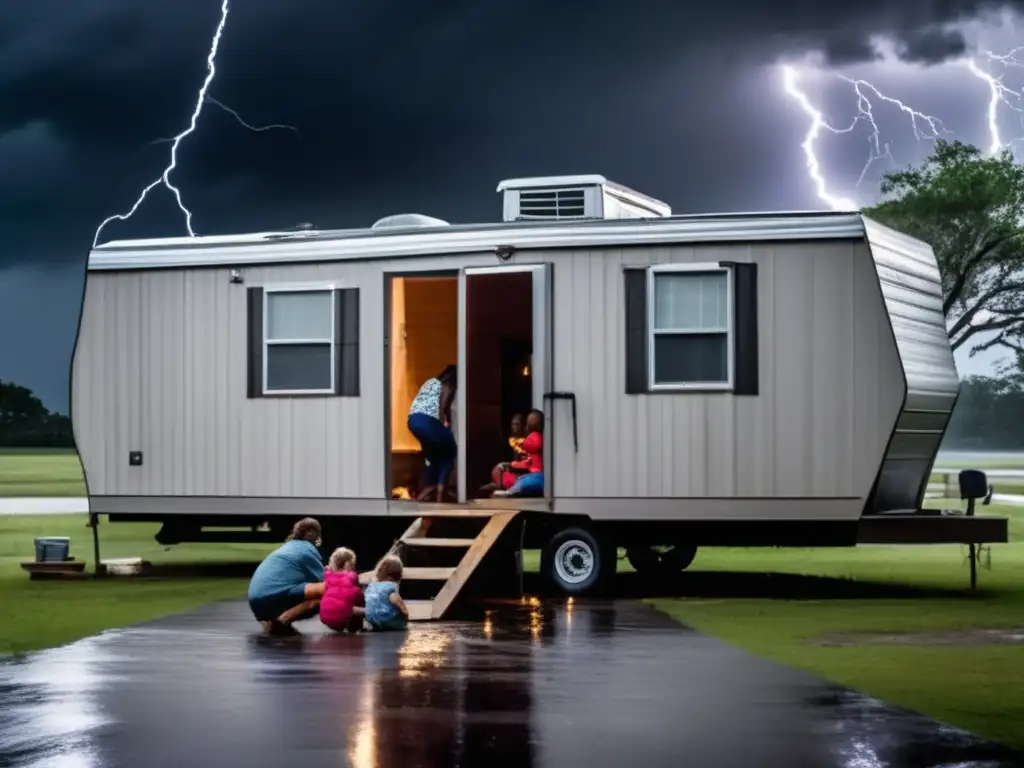
Mobile Home Safety: Preparing for Hurricanes
Introduction
Living in a mobile home can be a wonderful experience, but it can also be a challenge when it comes to preparing for natural disasters like hurricanes. Being proactive and taking necessary precautions can help protect your family and your home during a hurricane. In this article, we will discuss important mobile home safety tips and preparations that can help you stay safe during a hurricane.
Understanding Hurricanes
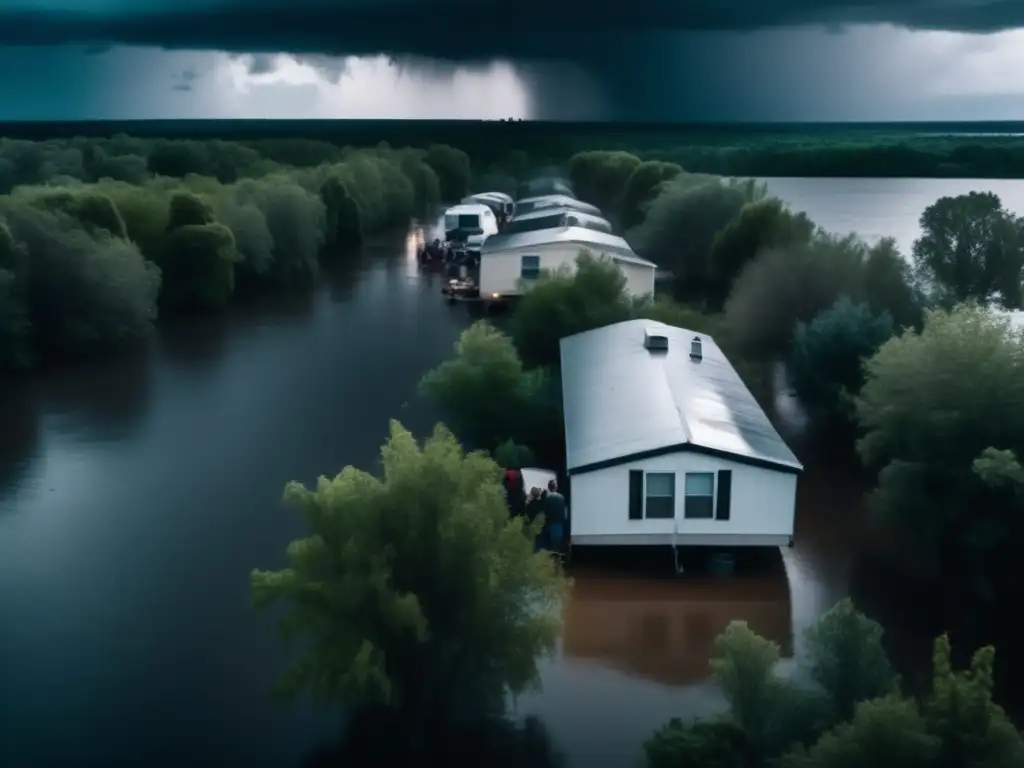
What is a Hurricane?
A hurricane is a tropical cyclone that can form over the ocean. It is characterized by strong winds that can cause severe damage and flooding. Hurricanes are categorized on the Saffir-Simpson Hurricane Wind Scale based on their wind speeds, which range from Category 1 (74-95 mph) to Category 5 (157 mph or higher).
Why are Mobile Homes at Risk During Hurricanes?
Mobile homes are more vulnerable to hurricane damage due to their lightweight construction and mobility. They are often not anchored to the ground as securely as other homes, and their roofs are not as sturdy. Additionally, mobile homes may not have as many windows or doors, which can make it difficult to escape in an emergency.
How Can You Prepare for a Hurricane?
Preparing for a hurricane involves several steps, including creating a disaster kit, securing your home and property, and developing an evacuation plan. Before a hurricane strikes, it is essential to monitor the news and weather reports and follow any evacuation orders given by local authorities.
Securing Your Mobile Home
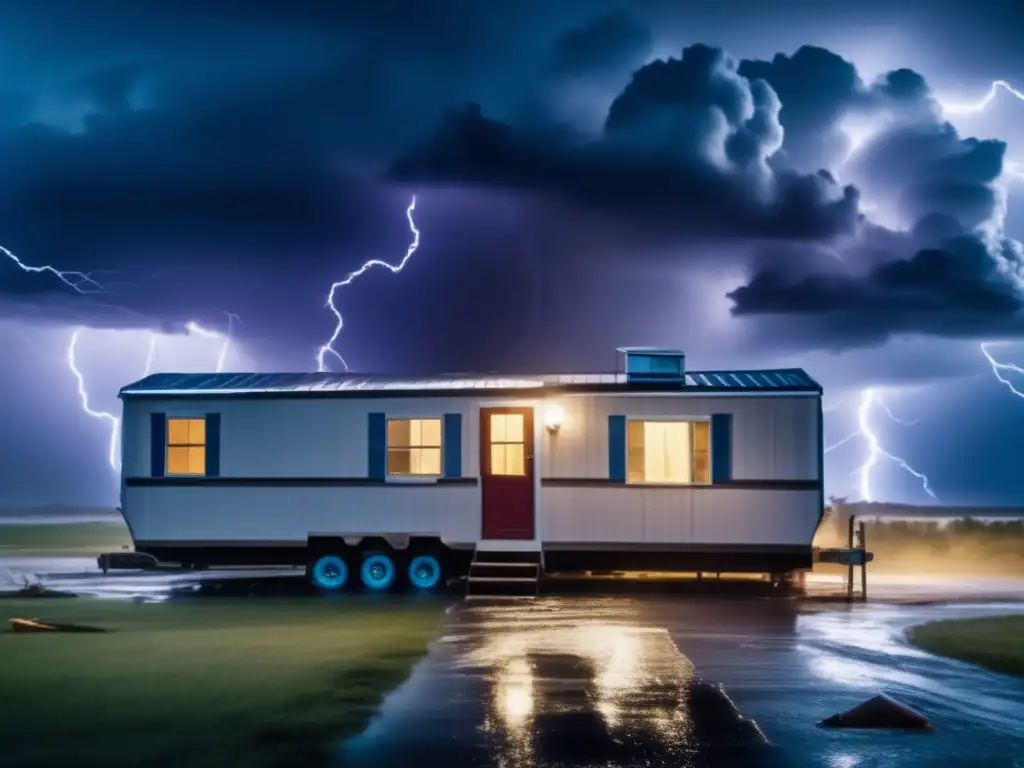
Anchoring Your Mobile Home
One of the most important steps in preparing a mobile home for a hurricane is to anchor it properly. Anchoring systems designed for mobile homes can help keep them in place during high winds. The anchors should be installed by a professional and placed every 4-5 feet around the perimeter of the home.
Securing the Roof
The roof of a mobile home is one of the most vulnerable areas during a hurricane. Consider installing hurricane straps or clips to better secure the roof. Additionally, trim back trees or branches that are close to the home to reduce the risk of damage from falling debris.
Protecting Windows and Doors
Windows and doors are also vulnerable areas during hurricanes. Covering them with plywood or metal shutters can provide extra protection against wind and flying debris. Make sure that exterior doors have at least two locks and a deadbolt and that all windows are closed securely.
Creating a Disaster Kit
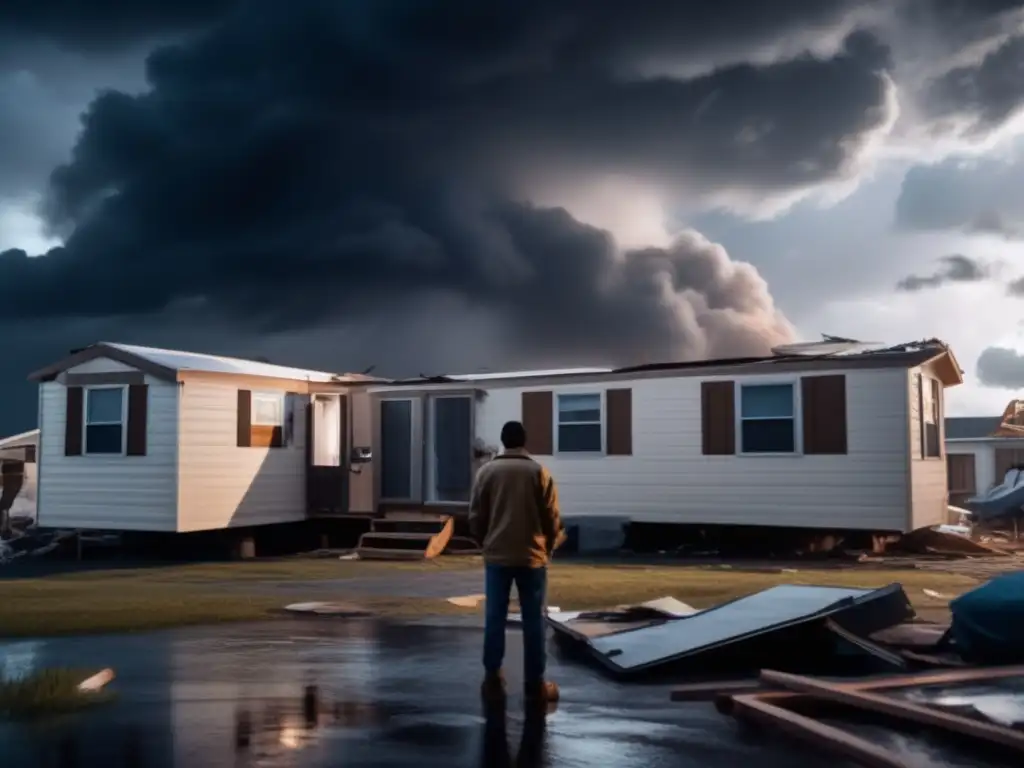
Essential Supplies
A disaster kit should contain essentials such as non-perishable food, water, first aid supplies, flashlights, batteries, and extra clothing. It should also include any medications needed, pet food and supplies, and important documents like birth certificates and insurance policies.
Emergency Communication Plan
It is important to have an emergency communication plan in place for your family. Identify a safe meeting place in case you become separated, and make sure everyone knows how to contact each other if phone or internet service is disrupted.
Evacuation Planning
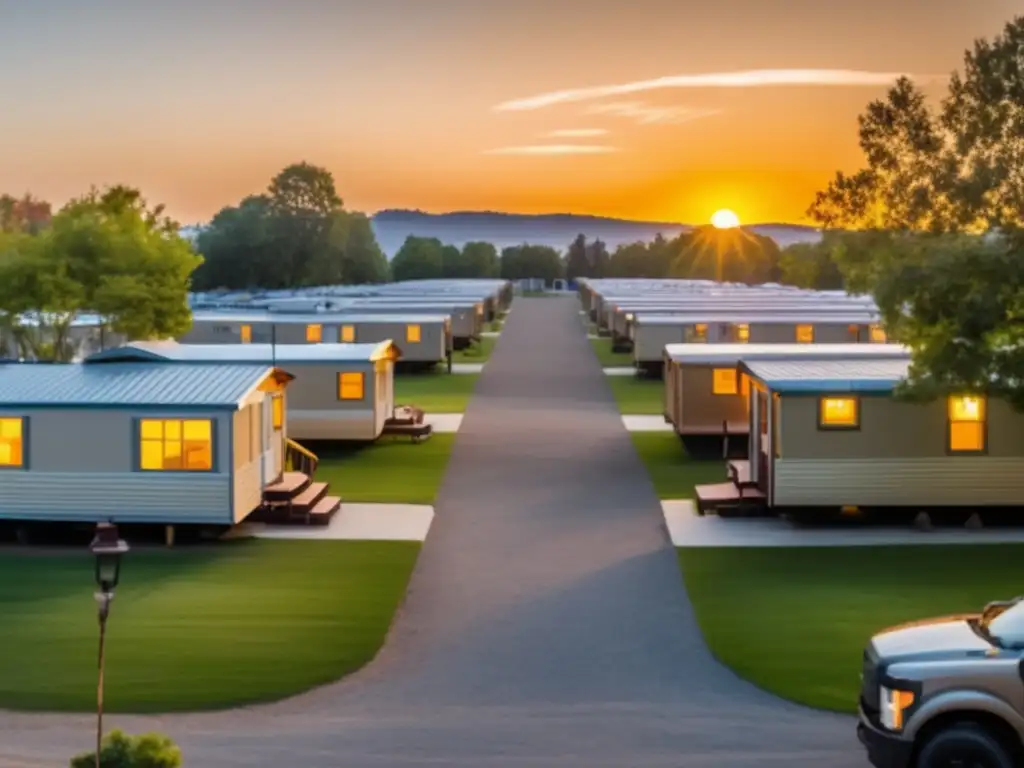
When to Evacuate
Evacuation orders are given for a reason, and it is important to follow them as soon as possible. Do not wait until the last minute to evacuate, especially if you live in a mobile home or a low-lying area. If evacuation is not mandatory but recommended, consider leaving ahead of time to avoid traffic congestion and potential danger.
Evacuation Route
Plan your evacuation route in advance and have a backup plan in case the primary route is blocked. Keep an eye on the weather and be ready to evacuate if necessary. Always have a full tank of gas and take extra cash in case ATMs are not available.
Frequently Asked Questions

-
What Should You Do After a Hurricane?
Stay away from flooded areas, damaged buildings, and downed power lines. Report any structural damage to your local authorities and contact your insurance company to report any damage to your property.
-
How Can You Stay Informed During a Hurricane?
Monitor local news and weather reports, sign up for emergency alerts, and follow social media accounts of local authorities and emergency management agencies for updates.
-
What Should You Do if You Are Trapped in Your Home During a Hurricane?
Move to an interior room without windows, if possible, and stay there until the storm passes. If you cannot find an interior room, try to cover yourself with blankets or a mattress.
-
Is Flood Insurance Necessary for Mobile Homes?
Yes, flood insurance is highly recommended for mobile homes, especially those located in flood-prone areas.
-
What Should You Do if You Are Caught Outside During a Hurricane?
Seek shelter indoors as soon as possible. If there is no shelter available, lie flat in a ditch or other low-lying area and cover your head with your hands.
Conclusion
Being prepared for a hurricane when you live in a mobile home is essential for your safety and that of your family. Take steps to secure your home, create an emergency kit, and plan for evacuation before the hurricane strikes. Remember to stay informed and follow the guidance of local authorities. By taking these precautions, you can help minimize the potential damage from a hurricane and protect yourself and your loved ones.
At HurricaneInsider.org, we provide valuable information for those living in hurricane-prone areas. Follow us on social media and subscribe to our newsletter to stay up-to-date with the latest news and resources.
Additional Resources
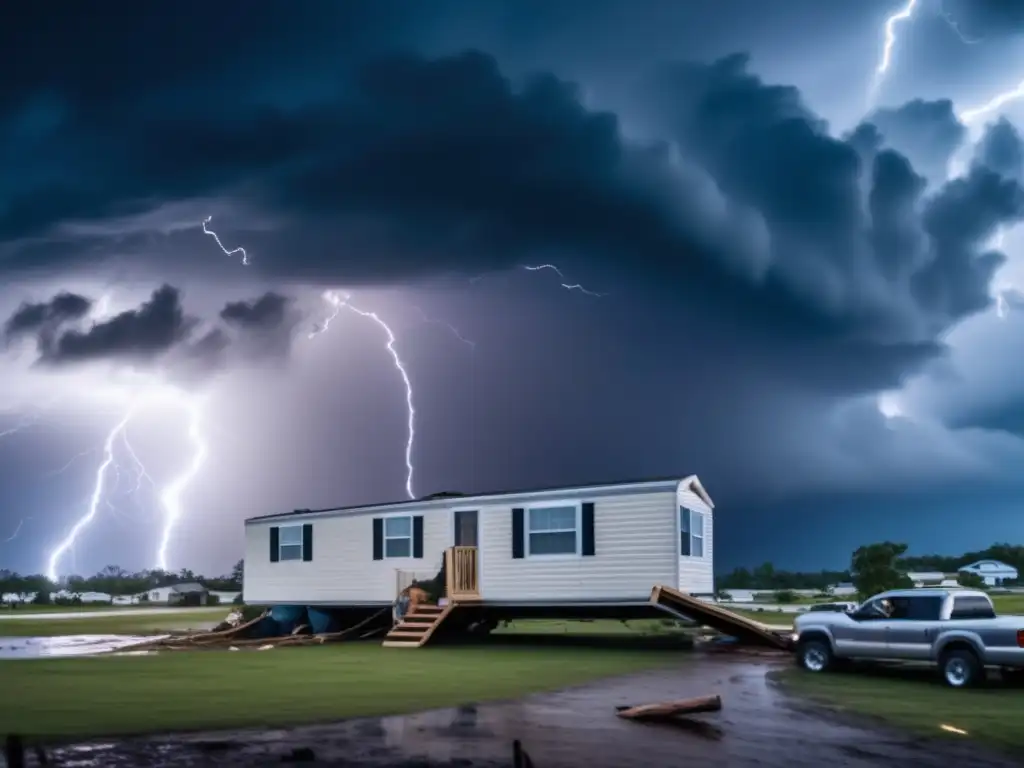
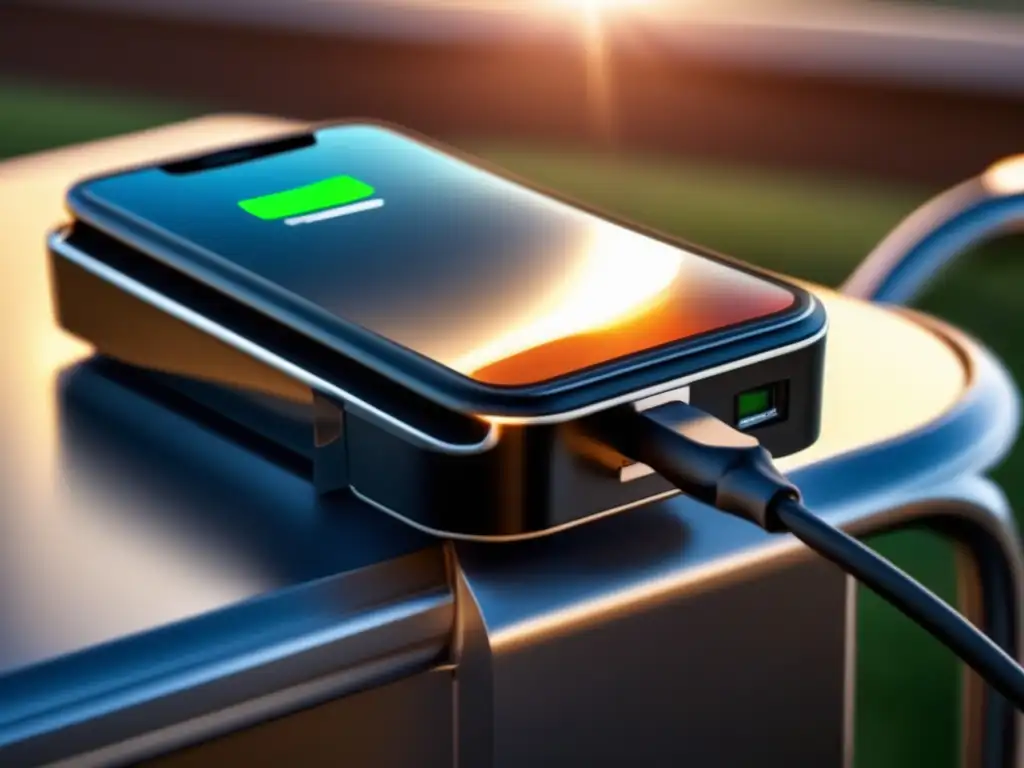 Hand-Crank Cell Phone Chargers
Hand-Crank Cell Phone Chargers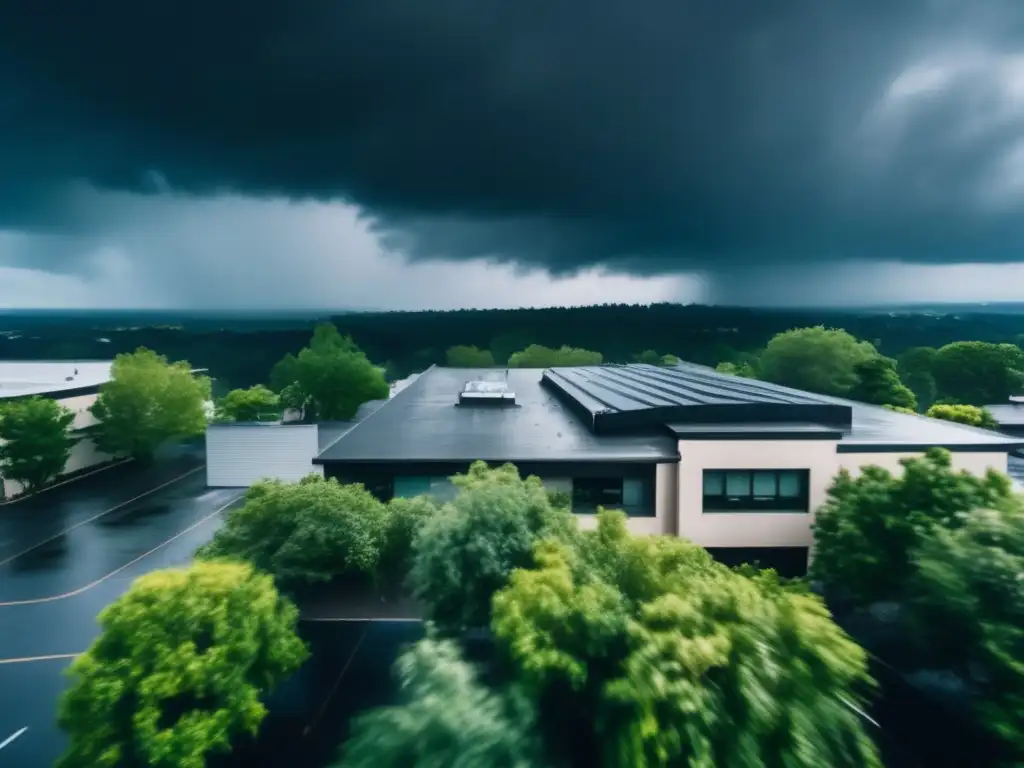 Guarding Your Business: Protecting Commercial Property From Hurricanes
Guarding Your Business: Protecting Commercial Property From Hurricanes Storm-Proof Umbrellas
Storm-Proof UmbrellasIf you want to discover more articles similar to Mobile Home Safety: Preparing For Hurricanes, you can visit the Hurricane preparedness: category.
Leave a Reply

Articulos relacionados: